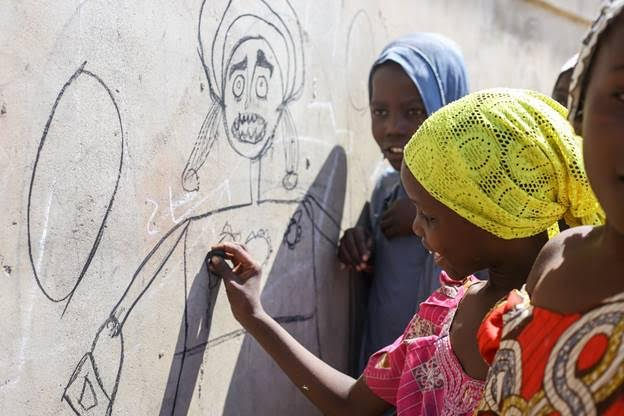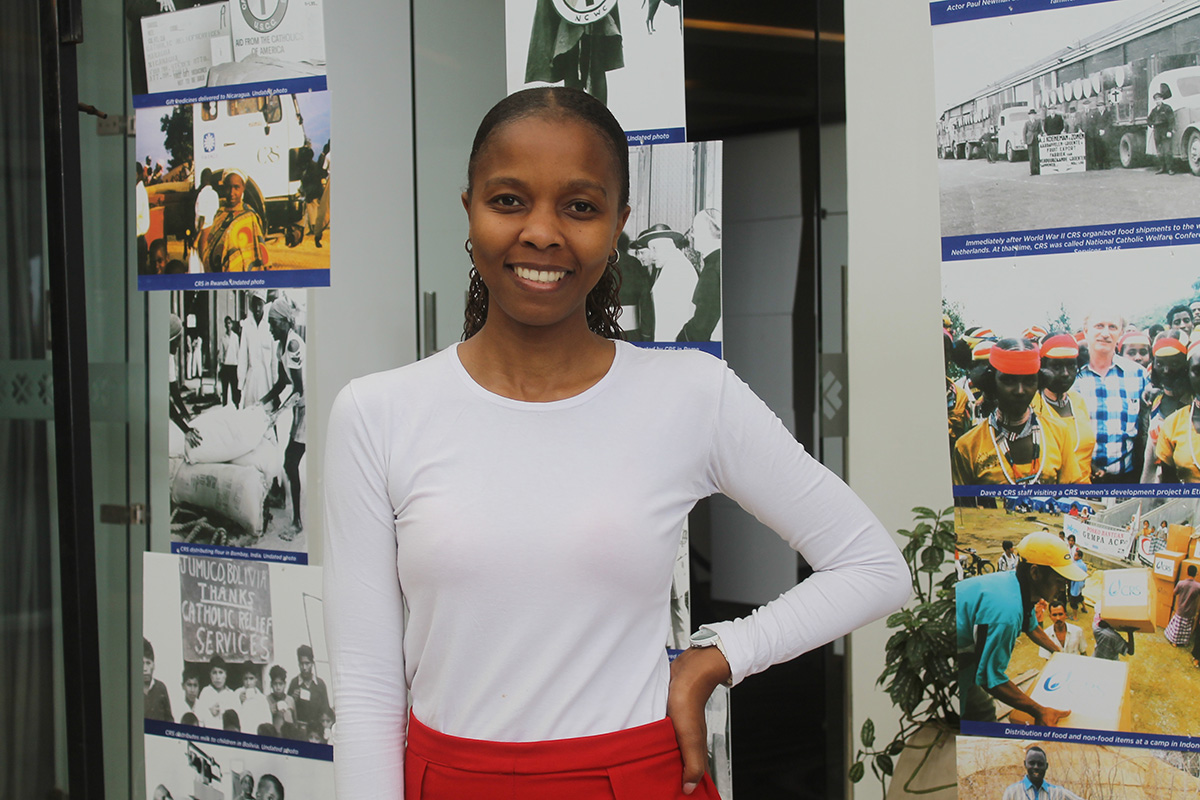“Let her be a girl child, not a child bride”
March 6 Child marriage is a problem that has persisted in spite of continuous struggle to eliminate it from society, writes Jamila Haruna, 25, a Correspondent from Kaduna state, Nigeria, who describes the system that forces young girls into becoming wives and mothers.
Child marriage is a problem that has persisted in spite of continuous struggle to eliminate it from society, writes Jamila Haruna, 25, a Correspondent from Kaduna state, Nigeria, who describes the system that forces young girls into becoming wives and mothers.
A Global Citizen record shows that at least one girl gets married off every two seconds, which means that each year about 15 million girls get married before the age of 18. Two major indicators point to the likelihood of child marriage: poverty and lack of proper education.
As such, there may be a significant reduction in the number of child brides when poverty is greatly diminished and more girls are encouraged to get educated.This way, we would have better chances of finally putting an end to girl child marriage.
According to an article published on Girls not Brides, in Nigeria 43 per cent of girls were married off before the age of 18, and 17 per cent married off before the age of 15. Most of these girls were raised in impoverished families who believe this is the only way to provide better living conditions for their children.
The good news is there has been a nine per cent decline in child marriage since 2003, which shows that indeed there has been an improvement. In a situation where these adjustments keep being made there should be hopes of better lives for our young girls with time. Despite this, there is an urgent need for not only the Nigerian government, but the global world to work together to ensure a change.
All over the world, not just Africa or Nigeria in this case, it is evident as seen in countless cases that young girls filled with potential to make something great out of their lives are forced into marriages to older men. This terminates most or any possibilities of achieving an education, or making their life’s dreams ever come true. Every young girl has dreams of being fulfilled in her lifetime, and eventually getting married out of love, mutual respect and understanding. But when she is forced to get married without her consent – out of cultural and parental values – she loses any hopes of turning these dreams to reality.
In northern Nigeria, among more traditional communities most parents tend to believe that their female children need not attain more than primary school education, as further education is less beneficial to their social standing than getting married to older men belonging to a higher economic status. In these same northern communities, they believe that once a girl begins puberty she is ‘’ripe’’ enough for marriage and raising her own family. As such, tradition says there is absolutely nothing illegal or wrong about her going into a marriage.
This unjust treatment has gone on for centuries and needs to be deeply tackled once and for all in order to secure the mental and physical well-being of these girls. This violation is a clear infringement of women’s rights, the rights of the girl child, and fundamental human rights. Nigeria has begun to take active steps in ending child marriage by launching AU campaigns in order to put a stop to child marriage. This began in November 2016 by the Ministry of Women Affairs and Social Development, with their main goal being to completely end child marriage in Nigeria.
A large number of girls who have gotten married at a very young age have ended up being ‘’children with children’’, or afflicted with vesicovaginal fistula as a result of childbearing damage to under-developed bodies, and they are later abandoned with the social and mental stigma. Forcing a girl child into marriage also takes away her right to be a child. It limits the right to play and interact with her peers, because it takes away the joys and memories of childhood as she is forced to mature more quickly than other girls.
There is a sunny side up to this story, as young girls are gradually taking control of their lives, taking major life decisions such as getting educated, and refusing to be sold into this unequal domestic situation. This is as a result of stories which other victimised young girls tell. These stories shape the ideologies of young girls to believe that they are much more than what the society has defined them by, and foster the utmost belief that they deserve to have better lives.
It is very important that we encourage young girls who have been through these circumstances to tell their stories in order to raise more awareness on the matter, and give them a channel to find closure. More women should also be encouraged to gain education, because an educated woman will ensure that her children do the same, which plays an important role in drastically reducing the number of child brides globally.
Photo credit: USAID Africa Going beyond the conflict – Borno, Nigeria via photopin (license)
…………………………………………………………………………………………………………………
About me: Self-motivated, I aim to succeed and be fulfilled in life. I studied International Relations in Nottingham Trent University and I aim to make a significant difference in society through work in international organisations. Currently I work in an engineering company as a commercial officer building relationships and improving client base. I wish to someday travel the world, make a difference and start up an organisation aimed at relieving the struggles of women and abused children.
…………………………………………………………………………………………………………………
Opinions expressed in this article are those of the author and do not necessarily represent the views of the Commonwealth Youth Programme. Articles are published in a spirit of dialogue, respect and understanding. If you disagree, why not submit a response?
To learn more about becoming a Commonwealth Correspondent please visit: http://www.yourcommonwealth.org/submit-articles/
…………………………………………………………………………………………………………………




